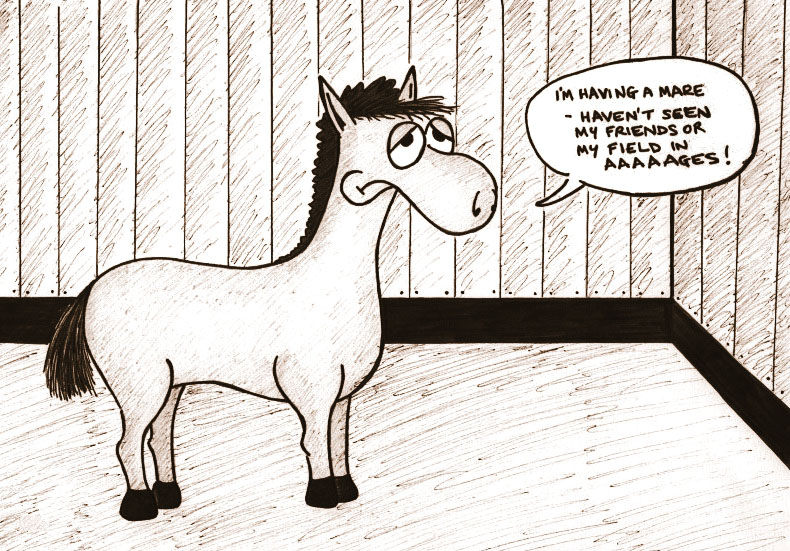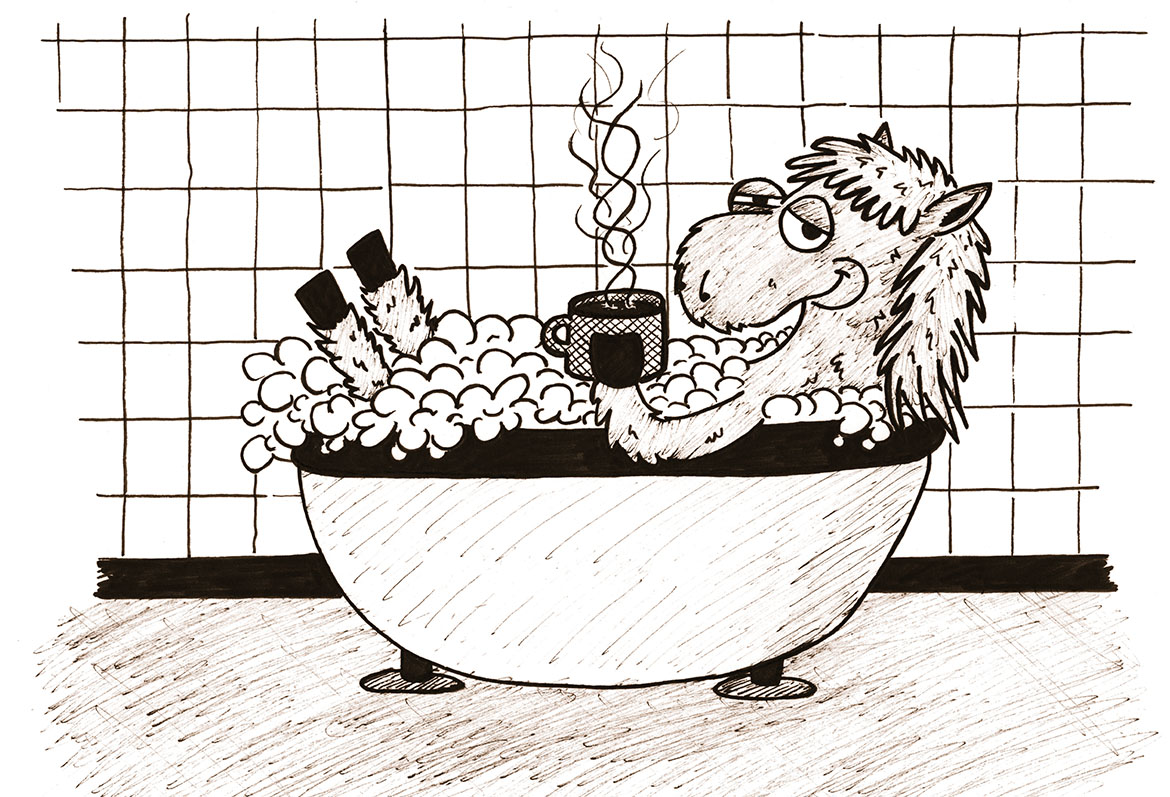Every horse owner relishes the coming of spring. Oh to be free from freezing fingers, muddy wellies, muddy rugs, muddy everything! We ride out the winter blues by taking long, hot baths, nestling by a roaring fire, cupping a steamy hot chocolate in hand. In winter, horses don’t find their ‘creature comfort’ in the same way (unless you’re a miniature Shetland or Falabella with a penchant for a warm bathtub!) However, there is much we can do for our horses to keep them happy, which in turn, as their carers and friends, bring us happiness too!
Aspects of horses’ behaviour can become challenging in winter. Perhaps you’ve noticed your horse is stronger on a hack or a little cheeky to handle in and around the stable. He may even exhibit mild stereotypic behaviour (aka ‘stable vices’) which you don’t see during the rest of the year. We do so much to keep our horses healthy and happy because we love them. For a moment however, visualise how the horse lived originally, and how he’s housed now in our domesticated world. Consider the horse’s basic needs as nature intended; naturally living in small groups of mixed age and gender, roaming grasslands and grazing at liberty… Through domestication horses’ nutritional and social needs haven’t evolved. Though they lead very different lives, their behaviour hasn’t evolved to necessarily cope with domestication. Horses need 3 things, always: FORAGE, FREEDOM and FRIENDS.
At this time of year, unless your horse is fortunate enough to have access to ample grassland, he may be spending less time at liberty, grazing and socialising. Occasionally, less time spent ‘naturally’ can lead to frustration or anxious behaviour. This can be when undesirable behaviours or bad habits may form.

The good news is that no matter how your horse is kept, there are easy and practical ways to provide an ethologically sound environment to keep your horse happy, whatever the weather.
Tips to keep your horse from moody winter blues …
- If without winter turn out, could you ‘loose yard’ your horse, with a best buddy, for as much of the day as possible? A safely fenced area with hay to forage through can help satisfy a horse’s need to roam, explore and socialise. A secure arena can work really well too. Some owners fear that an arena, being a place of ‘work’, can be confused by the horse using it as a ‘play’ area. This isn’t the case however, so an arena can double up usefully as a place of freedom.
- As a grazing herbivore a horse eats naturally for a minimum of 12 hours a day, so ensure there’s plenty of good quality fibrous feed available. The saying “a healthy gut makes for a healthy horse” is not wrong.
- There’s another saying I really like, “Good behaviour from the ground up”. This is so true. If it’s too dark to ride in the evenings, or the arena is frozen, try using a little time to deepen the bond with your horse through invaluable ground work. Leading your horse with plenty of direction change and transitions to keep things interesting can really strengthen a partnership. A stronger partnership on the ground can have a powerful effect on improving your ridden relationship too. Horses communicate virtually 100% through their body language. It’s a fascinating fact that they also read some of our body language as if another horse. So the way in which we behave towards our horses, naturally affects the way they behave towards us.
So, delay that soak in the bath by 5-10 minutes and your ground work efforts will be rewarded as you and your horse’s bond strengthens further.

